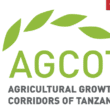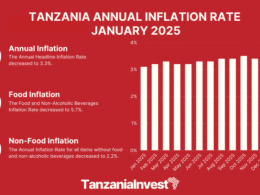According to the International Monetary Fund (IMF), Tanzania is included in the list of countries that were the least affected by the international financial and economic crisis and, in spite of fact that the Government of Tanzania was unable to meet its 2008/09 revenue target by 10 percent, the Tanzania National Bureau of Statistics (NBS) recently announced that some of the key contributing sectors to the Tanzania economy were able to record modest growth during the first quarter of last year.
Several of the key contributing sectors to the Tanzania economy were forced to put aside several key projects and terminate hundreds of jobs as businesses within these sectors attempted to counteract the effects of the economic meltdown.
Among the sectors that were most affected by the crisis were the Tanzania investment flows, mining and tourism sectors.
At the same time, according to a recently released NBS report in which the country’s economic performance was reviewed, activities in the country’s fishing sector during the first quarter of 2009 reported a growth of 7.9 percent compared to the -19.4 percent growth that was recorded during the same period in the previous year.
The NBS report, entitled Quarterly Gross Domestic Product of Tanzania Mainland First Quarter 2009, went on to explain that the high growth had been attributed to an increase in the demand for both fish and fish products in foreign markets.
In addition, the NBS report indicated that that the Tanzania agriculture sector experienced a slight growth during the first three months of 2009 of 0.3 percent, representing a decline in the growth rate when compared to the first quarter of 2008, which recorded a growth of seven percent.
During the same period the production of a major Tanzanian cash crop and national staple, maize, also recorded a marginal increase of two percent from 650 tons during the first quarter of 2008 to the 663 tons that was recorded for this review period.
In addition to this increase, paddy harvests also increased by four percent from 249 tons in 2008 to 259 tons for this review period while, at the same time, harvest of millet and sorghum also reported an increase of one percent and the harvest of cassava harvests increased by seven tons.
According to a report by The Citizen Tanzania, the country’s Minister of Agriculture, Food Security and Cooperatives, Stephen Wasira, has attributed the shortfall in national food stocks to unpredictable weather conditions that were recently experienced in some parts of the country, particularly in the Southern Highlands.
In spite of the fact that the country’s food deficit had reached a total of 1.3 million tons as a result of these weather conditions, Mr. Wasira indicated an expectation that Tanzania would be able to report a slight surplus of food at the end of the current farming season.
Additional growth was reported in the Tanzania hospitality sector, which recorded a growth of 4.3 percent in the first three month of 2009 compared to the 4.6 percent that was experienced during the same period in 2008 while, at the same time, the number of domestic hotel visitors also recorded an increase from 141,237 to 153,591, which has been attributed to the marginal increase in the number of international and resident visitors to the country’s hotels.











